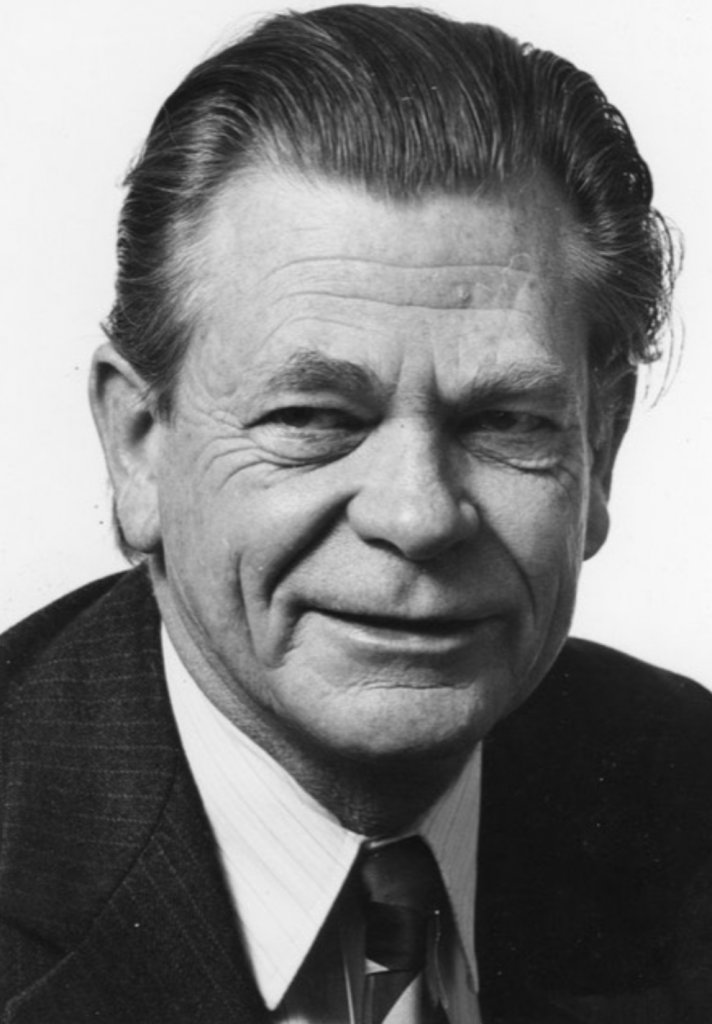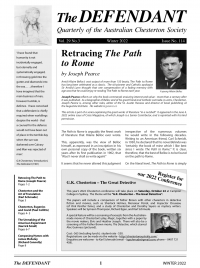The distinguished Australian composer and producer Richard Connolly died on May 4 at the age of 94. He is affectionately remembered in Australia, both for his ABC productions – in particular the children’s TV show, Play School, for which he composed its theme song – and for his liturgical music. He produced many hymns in collaboration with his friend, the poet James McAuley.
In 2017 Richard Connolly wrote an article for The Defendant in which he reflected on his composition of the music to accompany McAuley’s words. We pay a grateful tribute to him by republishing it.


In a speech I made at my 80th birthday party, looking back over things I had made and done, including ABC features of which I was very proud, I concluded with these words:
Best of all, the day in 1955 that (Father) Ted Kennedy introduced me to James McAuley and the years of friendship that followed. The twenty or so hymns that Jim and I made are the best, the finest thing I have made or done in any field, except for my family. That is plain to me, and there is little to add to it.
Ted had shown me some words of the recent convert to Catholicism, James McAuley, and asked that I put them to music. The result was ‘Help of Christians, Guard This Land’.
It was included, together with an Offertory Hymn also by McAuley, in a collection called ‘We Offer the Mass’ (still the Latin, Tridentine Mass). The publisher — under the aegis of a group of liturgically aware priests led by Roger Pryke – was called The Living Parish Series.
The ‘Living Parish’ priests were men of imagination, and on the evidence of these two hymns they commissioned McAuley and me to compose hymns for the feasts and seasons of the Liturgical Year; and that was when our collaboration really got under way. Twelve hymns were made in the years 1960-1962, and published in 1963 as ‘Hymns for the Year of Grace’.
By now, Jim and I had become close friends, and each of us possessed a sympathetic understanding of the other’s craft. Jim was a classy jazz pianist and an organist as well, and I was a senior producer of poetry for a then very different ABC.
So although Jim moved to the University of Tasmania in 1960, just as we were getting started, we found the separation no great handicap. He would post me the words of a new hymn; I would make a tune with accompaniment (normally within a few days) and await his comments and the next set of words, which might come soon, or after an interval of weeks or even months. No fuss, and never any disagreement. Once or twice I asked his approval for some minor change like the splitting of a long line into two short ones, and he readily agreed.
It seemed to me that most of the tunes I made in that collection were strangely not mine – so nearly did the words seem to clothe themselves in music. One felt oneself to be only half agent, and the other half sounding board… perhaps a sort of channel.
Not that there was any question of a ‘heightened’ state of mind; the operation was practical and pragmatic. It was just that the tunes seemed to come straight out of the words with no real effort on my part more than a kind of submitting my musical mind, or, better, making my musical self available, to the words.
I have tried to set hymn texts by others, but never so successfully. The same magic doesn’t happen.
I had by this time begun to have some reputation as a composer of film and TV soundtrack music for both ABC and BBC, as well as commercial outfits. But none of that music ever came so effortlessly. The reason, I think, was the perfection of McAuley’s words. The language is theologically perfect and to the point. It uses beautifully the simplest of words, which nonetheless manage to embody infinite meaning and mystery.
No one could encapsulate the essential, eternal meanings and resonances as Jim did, steeped as he was in the Word, especially the Gospels and St Paul. I wrote somewhere that the merit of the hymns is ‘90% McAuley’, and I think that is right. It was not false modesty.
When I speak of the hymns I was ‘privileged’ to make with James McAuley, I am not demeaning my contribution. I think it a worthy one, and I am proud of it.
